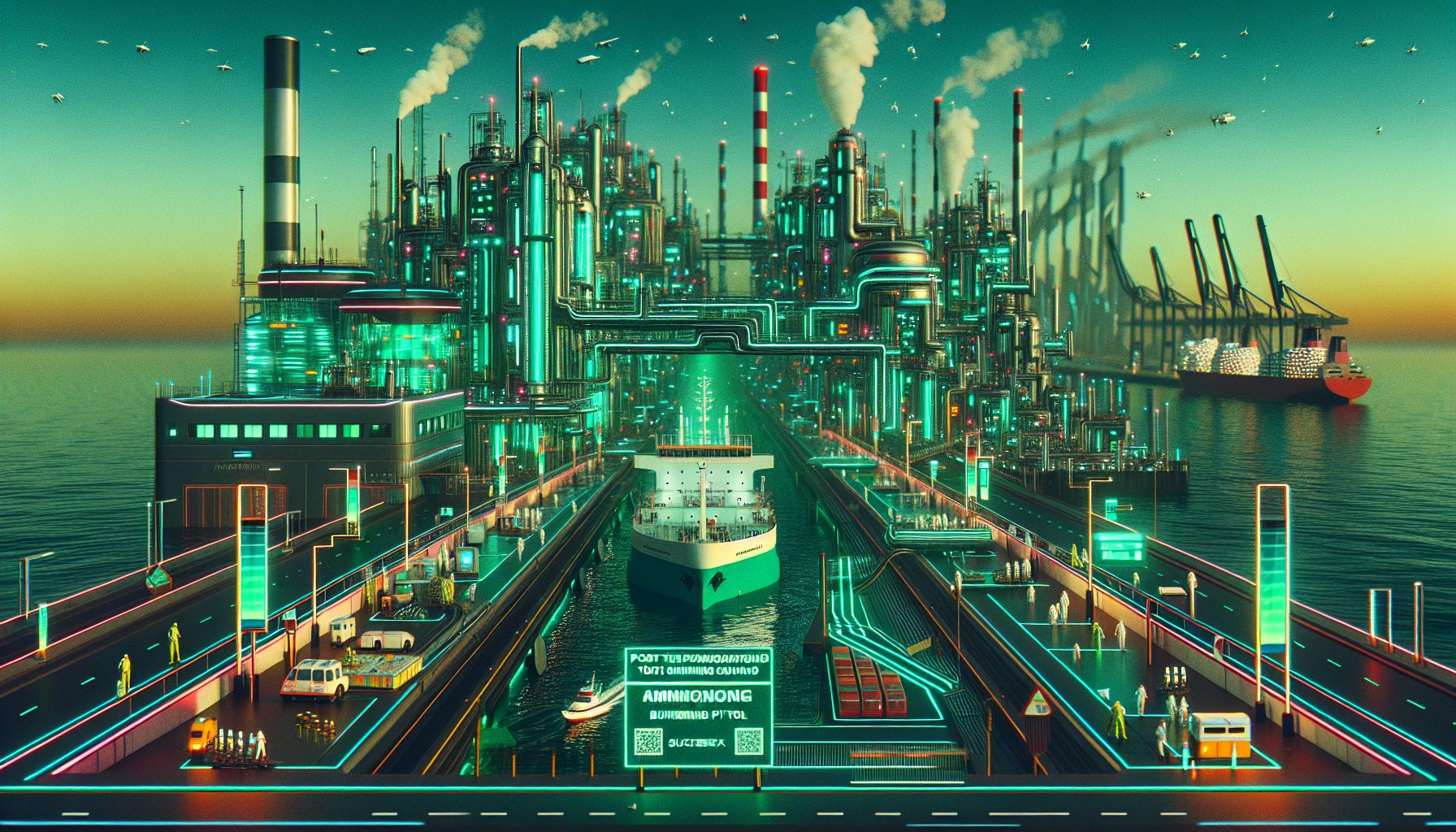Rotterdam's Ammonia Bunkering Pilot: A Big Leap for Green Shipping

Rotterdam, Wednesday, 16 April 2025.
The Port of Rotterdam just showed the world that ammonia bunkering is possible without spilling a drop. The recent pilot advances the port’s preparedness, paving the way for cleaner maritime fuels by 2026.
A Successful Pilot
On 12 April 2025, the Port of Rotterdam completed a groundbreaking ammonia bunkering pilot, carrying out a ship-to-ship transfer of 800 cubic metres of liquid ammonia at -33°C between two vessels. Conducted at the Maasvlakte 2 APM terminal, the operation took around 2.5 hours without any spill, marking a significant step toward carbon-neutral shipping and proving ammonia’s viability as a maritime fuel [1][2][3].
Partners in Innovation
This pilot engaged a variety of partners, each playing a crucial role. The Port of Rotterdam Authority orchestrated the initiative, while OCI and Trammo supplied the ammonia tankers. James Fisher Fendercare, known for its technical support, and bunker barge operator Victrol contributed expert knowledge to ensure the safe and smooth execution of the transfer [2][4][5]. Key safety oversight was provided by the DCMR Environmental Protection Agency, Rijnmond Safety Region, and Joint Fire Service [3][6].
Impressive Outcomes and Future Prospects
The pilot securely advanced the port’s readiness level for ammonia bunkering from level 6 to 7, as judged by the international Port Readiness Level assessment tool. This readiness equips Rotterdam for the arrival of the first ammonia-fuelled ships, anticipated by 2026 or 2027. The Port of Rotterdam aims to ultimately switch from grey to clean ammonia, further reducing carbon footprints in maritime logistics [1][4][7].
Part of the European MAGPIE Programme
This project forms part of the European Union-funded MAGPIE programme, designed to boost innovation and sustainability across ports. The success of the ammonia bunkering trial is set to send ripples through the maritime industry, with extensive knowledge sharing coordinated by the Mærsk Mc-Kinney Møller Center for Zero Carbon Shipping [5][6]. This is all part of a broader EU strategy to revolutionise shipping logistics with cleaner energy solutions and to transform ports into hubs of sustainable innovation [5][7].
Bronnen
- www.portofrotterdam.com
- www.porttechnology.org
- breakbulk.news
- www.ship-technology.com
- illuminem.com
- www.marineinsight.com
- www.marinelink.com